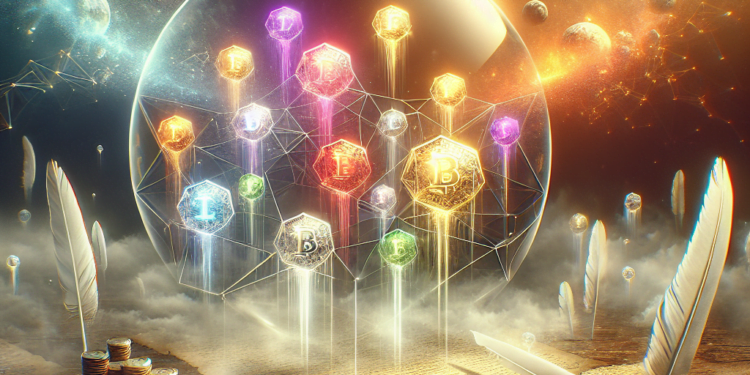There’s been a media blitz lately about a digital revolution that’s underway. With a dash of blockchain tech, digital creators are revamping how they create, own, distribute, and profit from their work. The secret ingredient? Non-Fungible Tokens (NFTs). Let’s take a deep dive into how NFTs are reshaping the landscape of digital creations.
Exploring NFTs
Non-fungible tokens (NFTs) represent unique assets in the digital realm. Unlike fungible tokens such as Bitcoin, NFTs are not mutually interchangeable. This unique property imbues digital creations with attributes of scarcity and exclusivity, raising their value significantly.
Ownership and Provenance
The world of digital creations has always grappled with the thorny issue of ownership. With the introduction of NFTs, this has been mitigatively addressed. NFTs operate as deeds of ownership to irreplaceable digital assets. They provide concrete proof of ownership, something that has been quite elusive in the digital world.
Besides, with NFTs, artists can track the provenance of their work, protecting it from fakes and forgeries. A digital creation turned into an NFT is timestamped, producing a secure and unalterable record of its creation, ownership, and transaction history. This is a powerful tool for authenticating digital creations and establishing their uniqueness.
Democratizing the Art World
Traditionally, for creators to make a substantial income from their work, they needed the backing of powerful studios or galleries. However, NFTs are radically democratizing the art world by eliminating these middlemen. This means that creators have more control over their work and can sell directly to fans on NFT marketplaces. It also means fans get to support their favorite artists directly.
Creating Novel Revenue Streams
With NFTs, digital creators are establishing new and exciting revenue streams. Artists, musicians, and other creators are now selling their work as limited editions, creating scarcity and consequently, value. Additionally, NFTs can be programmed with smart contracts allowing creators to earn royalties each time their work is resold on secondary markets. This gives artists substantial and long-term financial incentives.
Amplifying Engagement and Interactivity
NFTs are not just about buying and selling. They’re also about engagement and interactivity. NFTs in gaming, for instance, allow players to truly own in-game assets and even profit from them. Fandoms can engage deeper with their favourite stars through exclusive NFT merchandise or virtual experiences. This all makes digital creations much more immersive, flexible, and experiential.
Indeed, it’s an exciting era for digital creators. The possibilities with NFTs seem boundless. But just remember, as with anything new, it’s important to tread with caution and take the time to understand the space better. It’s evolving day by day, so keep informed with the latest twists and turns. A great resource for this is the DeFi Daily News, which offers trending news articles on this topic and more.
The rise of NFTs has undeniably transformed the landscape of digital creations. They are redefining ownership, turning creators into their own distributors and enabling them to pocket handsome profits. They’re creating more user engagement and interactivity. As we become more digital, the role of NFTs will only become more significant. However, let’s keep in mind that the NFT universe is in its nascent stages, and as we journey through it, we must carry a spirit of learning and curiosity.
What does NFT stand for?
NFT stands for Non-Fungible Token. It is a type of digital asset that represents real-world objects like art, music, in-game items, and videos. They are bought and sold online, often with cryptocurrency.
How are NFTs different from cryptocurrencies?
While both NFTs and cryptocurrencies exist on the blockchain, they are quite different. Cryptocurrencies are fungible and can be exchanged on a one-for-one basis. NFTs, on the other hand, have unique valuations as they are unique pieces of content on the blockchain.
How can creators benefit from NFTs?
Creators can benefit from NFTs in numerous ways: gaining control over their work, selling directly to fans, creating new revenue streams, and fostering more engagement and interactivity with their creations.
Are NFTs environmentally friendly?
This is a widely debated topic. Some argue that the energy consumption of blockchains, particularly Ethereum, on which most NFTs exist, is high. However, others are driving towards more sustainable solutions.



















